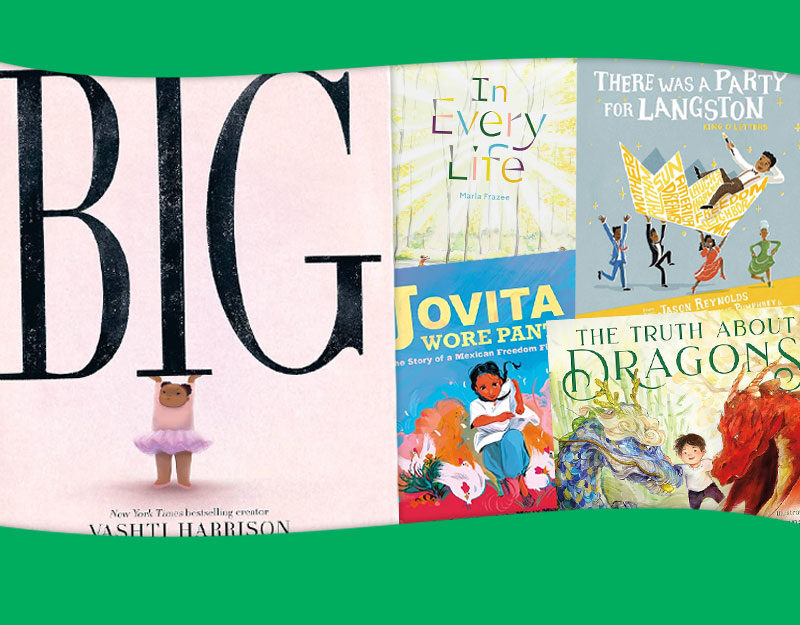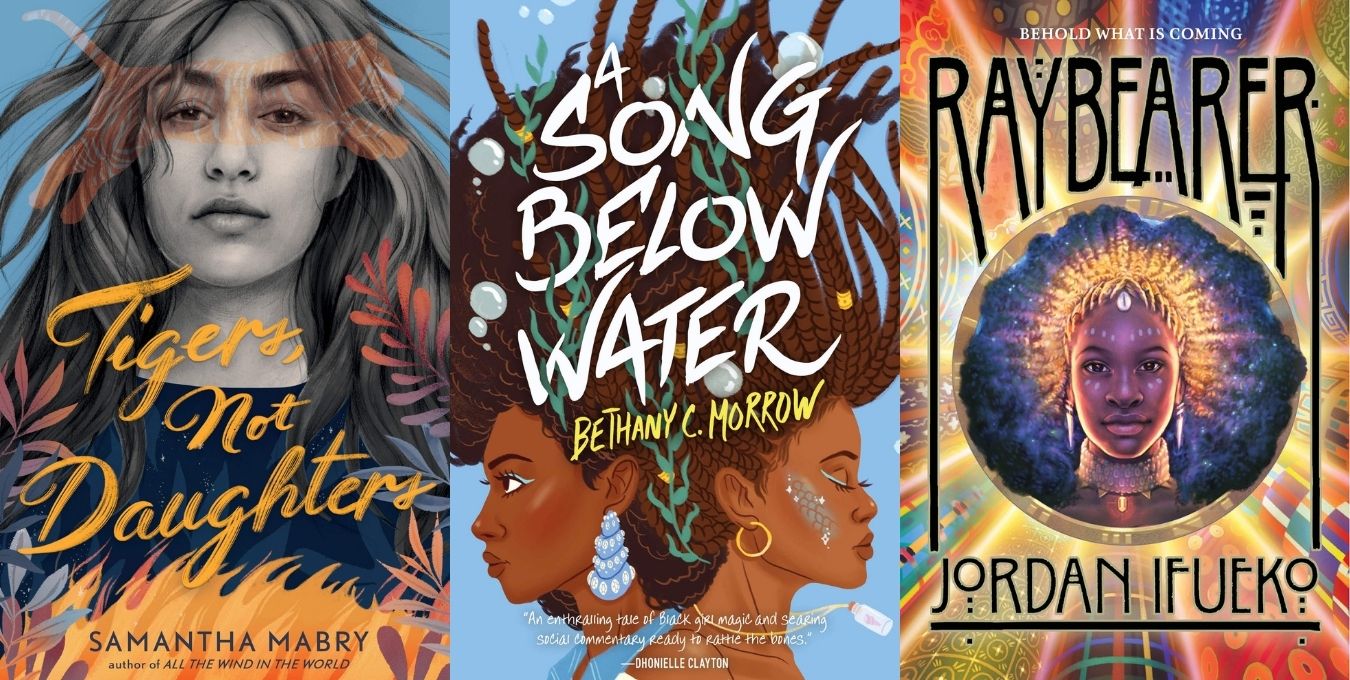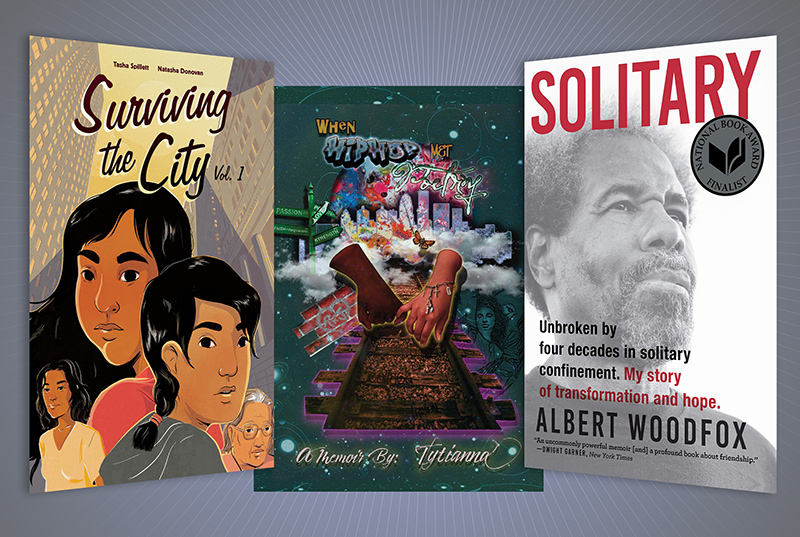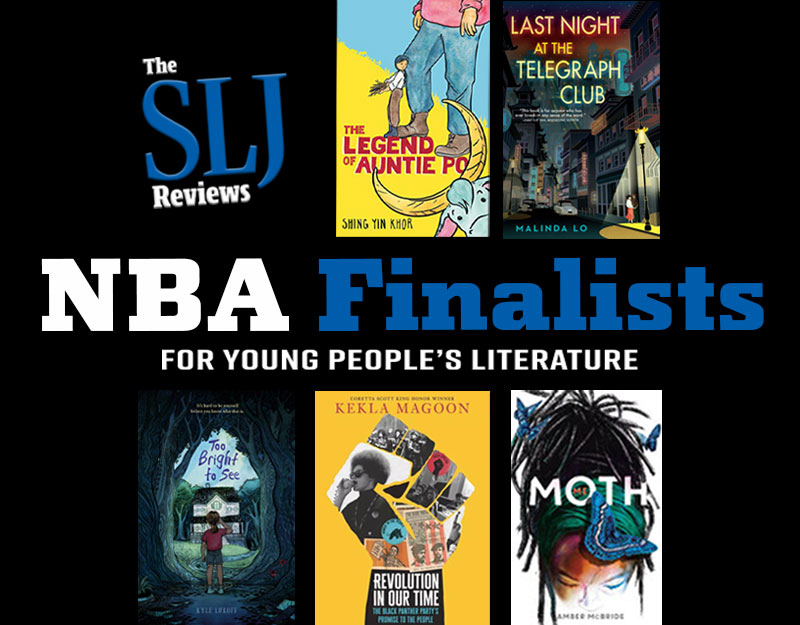Monster Throwdown: Deconstructing Vampires, Werewolves, and Louisa May Alcott
 Really, I wasn’t entirely certain what to expect when the good people of Symphony Space offered me a free ticket to see their Monster Throwdown: Vampires, Werewolves & Louisa May Alcott presentation this past Thursday. I liked the title, certainly. I liked the concept too. And I like Ron Hogan, the current director of e-marketing at Houghton Mifflin Harcourt, who helped organize the darn thing. In essence, the talk boiled down to:
Really, I wasn’t entirely certain what to expect when the good people of Symphony Space offered me a free ticket to see their Monster Throwdown: Vampires, Werewolves & Louisa May Alcott presentation this past Thursday. I liked the title, certainly. I liked the concept too. And I like Ron Hogan, the current director of e-marketing at Houghton Mifflin Harcourt, who helped organize the darn thing. In essence, the talk boiled down to:
– One Professor of English and Louisa May Alcott biographer.
– One author of a book called Little Vampire Women.
– One author of a book called Little Women and Werewolves.
ADVERTISEMENT
ADVERTISEMENT
So . . . okay. That’s pretty darn interesting.
The gist of the talk was that it was to be a discussion, moderated by the professor, between the two women. The professor in question was one John Matteson, author of Eden’s Outcasts: The Story of Louisa May Alcott and her Father (W.W. Norton), which won the 2008 Pulitzer Prize for Biography. As for the women themselves, the author of Little Vampire Women is Lynn Messina, maybe best known for the Fashionistas series, who came on wearing these remarkable knee-high boots that I spent most of the talk wanting very much. On the other side of the equation, Porter Grand, author of Little Women and Werewolves, a former reference librarian who came on wearing black lace tights of eye-dazzling patterns.
 First off, Matteson introduced the evening by putting Louisa into the proper context. I should mention that throughout the evening I was very impressed by his careful and precise choice of words. He never came off as contemptuous of this writing, and was even able to present both sides of the argument for and against it without ruffling so much as a single feather. What’s more, he could bring up intelligent points about the original text that a different moderator might have missed. For example, in a discussion of Mr. March (the character who may as well not be there at all) when he returns home from the war at last the first verb to describe him is "disappeared". Which is to say, he "disappears" under the hugs of his family. Telling, no?
First off, Matteson introduced the evening by putting Louisa into the proper context. I should mention that throughout the evening I was very impressed by his careful and precise choice of words. He never came off as contemptuous of this writing, and was even able to present both sides of the argument for and against it without ruffling so much as a single feather. What’s more, he could bring up intelligent points about the original text that a different moderator might have missed. For example, in a discussion of Mr. March (the character who may as well not be there at all) when he returns home from the war at last the first verb to describe him is "disappeared". Which is to say, he "disappears" under the hugs of his family. Telling, no?
Little Women is beloved, a fact that no one would be able to deny (it came in at #25 on the Top 100 Children’s Novels Poll). And in writing a mash-up, you have pre-opinions about your book even before it hits bookstore shelves. Therefore it is important to remember that before she wrote LW, Louisa wrote some pretty darn melodramatic fare for money. This led to a fun game, the brainchild of Mr. Matteson:
Alcott or Fauxcott?
In the game Alcott or Fauxcott you read melodramatic passages and then ask the audience to vote on which of the two was actually written by Miss Louisa. The audience did pretty well, at least when Mr. Matteson would include the word "stake" or "wolf", but there were a couple (one in first person) that I certainly missed.
 Having placed Louisa’s melodramatic shifts in writing in context, a handout in our program contained three written passages. They were all the opening paragraphs of Little Women, both the original and the two changed versions. You could compare the classic lines many know so well (the original read by Mr. Matteson) and then compare them to those of the new writers (as read by Messina and Grand). Admittedly, when placed side by side I felt that the vampiric Little Women had some inherent advantages over the werewolf Little Women. The writing itself was closer to the original text, a fact that Ms. Grand acknowledged readily. Above and beyond that, however, the writing itself wasn’t quite as clunky. For example, one line in Little Women and the Werewolves reads, "Elizabeth, or Beth, as everyone called her, was a rosy, smooth-haired, bright-eyed girl of thirteen who spoke in a soft voice, had a shy manner, a timid voice, and a peaceful expression" (boldface, my own). The word "voice" has for some reason been repeated twice, and we’re not even on the third page. It gave me more than a little reason to pause.
Having placed Louisa’s melodramatic shifts in writing in context, a handout in our program contained three written passages. They were all the opening paragraphs of Little Women, both the original and the two changed versions. You could compare the classic lines many know so well (the original read by Mr. Matteson) and then compare them to those of the new writers (as read by Messina and Grand). Admittedly, when placed side by side I felt that the vampiric Little Women had some inherent advantages over the werewolf Little Women. The writing itself was closer to the original text, a fact that Ms. Grand acknowledged readily. Above and beyond that, however, the writing itself wasn’t quite as clunky. For example, one line in Little Women and the Werewolves reads, "Elizabeth, or Beth, as everyone called her, was a rosy, smooth-haired, bright-eyed girl of thirteen who spoke in a soft voice, had a shy manner, a timid voice, and a peaceful expression" (boldface, my own). The word "voice" has for some reason been repeated twice, and we’re not even on the third page. It gave me more than a little reason to pause.
 Both women had their reasons for selecting the monsters they did. Grand was more familiar than Messina with Alcott’s life, coming up with stories about her past that tied in well with her own story. For example, when Louisa was young she got a pair of green shoes and went out to show them off to the public. Along the way she got lost and huddled in a doorway until a gigantic Newfoundland dog located her and stayed with her until she was found. Grand posited that the Newfoundland could have stayed in Ms. Alcott’s subconscious in some way, as a benign creature. As for the kinds of wolves you find in her books, "I’m a purist when it comes to werewolves."
Both women had their reasons for selecting the monsters they did. Grand was more familiar than Messina with Alcott’s life, coming up with stories about her past that tied in well with her own story. For example, when Louisa was young she got a pair of green shoes and went out to show them off to the public. Along the way she got lost and huddled in a doorway until a gigantic Newfoundland dog located her and stayed with her until she was found. Grand posited that the Newfoundland could have stayed in Ms. Alcott’s subconscious in some way, as a benign creature. As for the kinds of wolves you find in her books, "I’m a purist when it comes to werewolves."
Messina, for her part, pointed out that Alcott’s text just naturally lends itself to vampirism. Remember, if you will, that in one moment of true pique Jo calls Aunt March a "vampire" in the original story. How much harder would it be to extend that to making all the Marches vampires? Vegetarian ones, of course (or at least as vegetarian as a vampire could be). The original text also contains points where Laurie is referred to as "a mortal boy" and Jo says several times that she will not marry "any human". Matteson mentioned that it was interesting to look at the "vegetarian" aspects of all this, and then proffered an anecdote about the time Alcott ate with Emerson. Emerson began cutting a large hunk of some kind of meat, and the conversation turned to cannibalism in other cultures. Alcott expressed surprise that people would find it so abhorrent saying that if you were going to be eating meat, after all, "why not the best?"
At one point the talk brought up the use of the word "vampire" both before and during the Civil War. According to Mr. Matteson, the word used to show up in Antebellum writings, as a term used by the anti-slavers for slavery. Think about it. Vampires are, like slaveholders, often upper class. "You don’t have a lot of working class vampires." Even more to the point, it was often thought that slavery wasn’t just harmful to the slaves, but destroyed the slaveholders’ humanity as well.
 There was also a bit of discussion as to whether or not Miss Alcott was contemptuous of the melodramatic style of writing. Ms. Messina defended it, however, saying that it suffered from what she dubbed "The Grease 2 Effect". As she put it, she likes Grease 2 and so do a lot of other people (a lone voice in the back of the room hooted its support when she said this). However, when asked they will insult Grease 2. They were despair of it and maybe even come up with reasons for disliking it that you yourself never even thought of. Such might have been the reaction of Louisa May Alcott to her more lurid writing.
There was also a bit of discussion as to whether or not Miss Alcott was contemptuous of the melodramatic style of writing. Ms. Messina defended it, however, saying that it suffered from what she dubbed "The Grease 2 Effect". As she put it, she likes Grease 2 and so do a lot of other people (a lone voice in the back of the room hooted its support when she said this). However, when asked they will insult Grease 2. They were despair of it and maybe even come up with reasons for disliking it that you yourself never even thought of. Such might have been the reaction of Louisa May Alcott to her more lurid writing.
The style of writing, where you take an original (public domain) text and give it a supernatural element is called a "mash-up". To place some of these mash-ups into context, Mr. Matteson read us a list of real mash-ups. Many I had heard of. Some I had not. And at least one of them caused the audience to gasp in horror at the sheer awfulness of the idea (Huckleberry Finn and Zombie Jim). The panelists were asked if they thought this style of writing would go away, and Ms. Porter said that you wouldn’t be able to take it away from her. Matteson could help but quip that it would take some prying "from our cold dead hands", eh?
The audience members were particularly charming at this discussion. No New York panel discussion that takes questions from its audience is ever complete without the old-timey New Yorker who starts to ramble, then makes brilliant salient points when you have begun to despair of where they are going. This talk had at least one of those, as well as people who were able to throw out little observations like, "I see that Alcott’s Marches are still the Marches, just with a different diet."
ADVERTISEMENT
ADVERTISEMENT
 Finally, the authors were asked what they were working on. Mr. Matteson replied that he’s writing a biography of Margaret Fuller. Lynn Messina is penning a middle grade robot book that I would now very much like to get my hands on. And Porter Grand was splitting her time between a book about Siamese ghost twins and Christian werewolves.
Finally, the authors were asked what they were working on. Mr. Matteson replied that he’s writing a biography of Margaret Fuller. Lynn Messina is penning a middle grade robot book that I would now very much like to get my hands on. And Porter Grand was splitting her time between a book about Siamese ghost twins and Christian werewolves.
In the end, the argument was made that rather than take away from the original books, mash-ups of this sort reinforce their canonical status. Time and again Grand and Messina would say how they couldn’t really change the essential structure of the story. You might want to marry Jo to Laurie, but the text wouldn’t let you. Not to say they didn’t make a lot of changes. Mr. March gets a much bigger role in Little Women and Werewolves and Messina always found it annoying that Beth doesn’t die of anything in particular. And it’s "particularly galling when it’s Clare Danes." In her book, Beth dies for a reason. Still and all, both authors kept their stories in the Alcott mold.
And so I end today with a prediction.
Prediction: In ten to fifteen years, there will be a new trend in literature. It will be popular but regarded with the same jaundiced eye that many mash-ups now face. In ten years time, we will see slash fiction become not only acceptable, but published. Slash fiction (defined here) is very popular in on fan fiction websites, but has yet to spark a publishing trend of its own. In the future, books well within the public domain will start to be rewritten, much as these mash-ups are today, but with different romantic liaisons. Laurie will finally get Jo, for better or for worse. Elizabeth Bennet will become closer to her friend Charlotte (to put it delicately). Other things will happen as well. The market will be surprised to learn that there is an appetite for such literature (an appetite that does not quite exist yet, but will thanks to the slow rise in popularity of slash fiction online throughout the years). And we’ll have many of the same conversations then that we’re having now. So sayeth I, Saturday May 8th, 2010.
Many thanks to Ron Hogan and the good people of Symphony Space for organizing this discussion. It provided a lot of food for thought. A enjoyable evening was had by all.
Filed under: Uncategorized
About Betsy Bird
Betsy Bird is currently the Collection Development Manager of the Evanston Public Library system and a former Materials Specialist for New York Public Library. She has served on Newbery, written for Horn Book, and has done other lovely little things that she'd love to tell you about but that she's sure you'd find more interesting to hear of in person. Her opinions are her own and do not reflect those of EPL, SLJ, or any of the other acronyms you might be able to name. Follow her on Twitter: @fuseeight.
ADVERTISEMENT
ADVERTISEMENT
SLJ Blog Network
Happy Poem in Your Pocket Day!
More Geronimo Stilton Graphic Novels Coming from Papercutz | News
Parsing Religion in Public Schools
Environmental Mystery for Middle Grade Readers, a guest post by Rae Chalmers
ADVERTISEMENT








I hope your prediction is wrong. “Mash-ups” are horrible and stupid enough — they are not real writing, they are cut-and-paste — but slash is indescribable crap. Garbage. Or, as you might say, pretty darn awful.
And yet, and yet, can’t you see it? Tell me this doesn’t sound possible. Nay, inevitable.
Oh dear, Anon. Opinions carry so much more clout with at least some hint of an identity. Initials, maybe? A nickname?
I was there too and found it quite entertaining. I’d actually read some bits of Messina’s book (thank you HarperCollins for sending it my way) beforehand so had some idea what she was about, but not Porter so I found the different approaches very interesting. I also knew, going in, a bit about Alcott and her LURID writings as well as her nutty father. (Go to Fruitlands sometime, I recommend.) So it was all just a lotta fun, if a bit ephmeral. (No offense to all players, but you gotta admit that this is all just a fun game and no more.)
I am always nervous–nay, contemptuous–of people who say with absolute conviction that one form of writing is “crap” or “garbage.”
There are always people who say that when any new genre or faux genre comes along. Doesn;t make them right, only right about certain books or stories.
Yes, Joyce spawned legions of bad stream-of-consciousness prose until Pynchon cam along. Early sf paperbacks came out of Wells and Verne and later metamorphosed into Bradbury, Sturgeon, and LeGuin. Pick your own genre, and you could add to the list.
The distinction should be between good writing and bad writing. There may still be someone who can write a brilliant mash-up novel. Would love to see Libba Bray tackle that. Or Shannon Hale. Or Neil Gaiman. Or Kathi Appelt. (Alice Hoffman did a brilliant modern mash-up of “Wuthering Heights” though all it did was show off the wife-beating bones of the original, alas.)
But don’t make a full-on THIS IS CRAP statement until or unless you have read everything out there and additionally have a crystal ball. Even (gulp) celebrity writers author an occasional good book.
Jane
Mash-ups bring interest to the original form too, keeping the books circulating and being read. This sounds like such fun.
Thanks for the Grease 2 reference too. Now I have one of the songs in my head. Love that movie.
Hmm. Your prediction is interesting, but the size of the audience has gotten a lot smaller for these classics. Most of the daughter’s contemporaries have not read them (unless assigned in school). I think the slash fiction will continue more with pop culture not the classics because there will be a limited number that would have the common frame of reference to appreciate them. YMMV.
I think you need to read more of both books before forming an opinion. I read both and find LITTLE WOMEN AND WEREWOLVES to have a superior storyline and plot. The descriptions in the werewolf scenes demonstrate very good writing! The vampire book is a little silly, so, perhaps because I am an adult, I felt the werewolf one was better.
Excellent point. No good comes of rushing into assumptions.
Ouch, Mercy, I can’t say that doesn’t hurt. “Silly” is an especially dismissive adjective. But it’s your opinion and of course I respect that. Still, it’s one of many. John Matteson, for example, very much enjoyed Little Vampire Women and particularly liked what I did with Beth and Laurie. Footage of the event is available on YouTube (search Monster Throwdown). I hope everyone will watch it with an open mind.
I think you’re right; I think slash will be huge. I’ve always enjoyed stories with a romance element, which a skillful writer should be able to incorporate into a classic tale in a way that will enrich the text without distracting from the plot. You get lots of plot to work with in those older novels. And when it’s done less skillfully, it’ll still be amusing to see unlikely pairings. Hmmm. Okay I call dips on the title “Treasure Island: A Love Story”. Interested agents and publishers feel free to email me.
PS. I’m also terribly fond of Grease 2
I was at the event, and I read both books, liked them both, but am pretty hard core when it comes to monsters, so enjoyed the werewolf book more. (Those illustrations are to die for!!) Sorry, Lynn. But don’t be so thin skinned. The author of the article was far more positive toward you than the other author in all regards, so Mercy’s comment evens things out.
Gosh, Lynn, I’m really sorry if I hurt your feelings. Silly was the word that came to mind when I read the scene where Jo tried to turn into a bat for the first time, so I thought you were meaning to be a little silly. Matteson did say a lot of good things about your book. He also said that Porter Grand’s book was the one to read if you want to be shocked, and he was right. I sincerely apologize if you feel bad about my remarks. I will bow out of this conversation for good now.